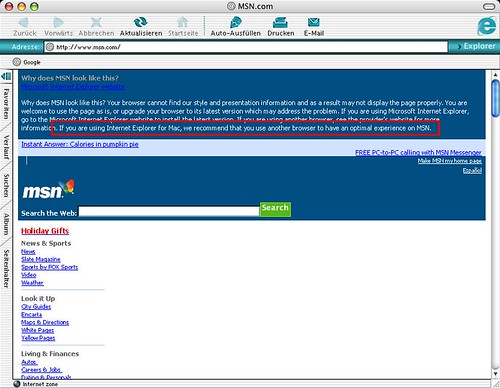Save Our Swisscom
I had been working in the telecom industry for nearly one and a half year now. Before I moved to London in June 2005, I have been working in the Swiss mobile telecom industry for one year.
There is currently a big discussion going on in Switzerland about the privatisation of "Swisscom", the former state telecom company "PTT". The Swiss State ist still holder of more than half of the shares and considering getting them in the public market. I pursue this discussion with great interest because since I have been working here in the UK, I became aware of the dimension of the market in the global or at least the European context.
In fact, I believe, the Swisscom, even though the market leader in Switzerland is in a very critical position. Yet it has a lot of liquid funds, a remarkable set of roaming contracts around the world and numerous interesting technological assets such as a notable 3G and EDGE coverage within the country.
But this is soon going to change. The Swiss market is simply too small for a company like Swisscom. The 3 million subscribers are not worth mentioning compared to the numbers of its competitors in Europe: Vodafone 150, Telefonica 145, T-Mobile 70 million subscribers worldwide (just to name three European carriers).
So there are only two options in the long term, eat or being eaten - and for "Swisscom", I only see the latter to apply in the global context. I am sure, this reminds us all of what has happened to the "Swissair" in October 2001. After a couple of backs and forths, the only decent thing that could happen, happened: The swiss public faced the fact that the a corporation like the "Swissair" (or later "Swiss") cannot survive in such an isolated market as Switzerland (Even London alone has a bigger population as entire Switzerland). It needs strong presence in a bigger context: The European market.
So what what will happen to "Swisscom"? First of all, the Swiss State has to get off the business affairs. Managing "Swisscom" and running the company is not the duty of the state. In fact, its mission is to regulate the market. Once the shares are public, it is likely that an european carrier (most likely "Vodafone", as they already hold "Swisscom" shares) invest in "Swisscom", simply because it is a lucrative market to be in. And eventually, the brand "Swisscom" will be completely replaced by the aquirer's brand.
But why is staying independent not an option for "Swisscom"? I believe, that the fact that the telecom market is such a fast paced and technologically driven market, you need a critical size in order to get return on your (research/technology) investments. The UMTS (or 3G) bid was a good example. At a certain point, it will not make sense to invest in the latest technology anymore, particularly if you have "only" 4 million subscribers. There is no room for growth in the Swiss market and bigger companies have more advantages in amortizing their investments.
The big issue that is coming up here is the loss of the identity. It will be painful for the public to adopt the fact, that "Swisscom", as swiss as it sounds, will not longer be a swiss company. Like every other company that hungers for a bigger market than the isolated and encapsulated off-european Swiss market.
But let's wait for the Chinese. They presently already have more than 300 million mobile phone subscribers (shared between two mobile telecom companies!), and the market is growing at a stunning 50 million additional subscribers per year. Maybe "Vodafone" may soon be spelled 声音数据电话.


